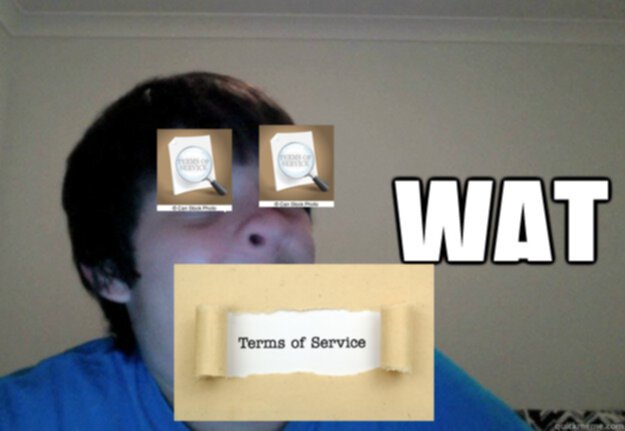User:Bohye Woo/Have you read your contract?: Difference between revisions
| Line 39: | Line 39: | ||
</gallery> | </gallery> | ||
<br> | <br> | ||
Terms of service are the legal documents presenting the agreement between a service provider and a person who wants to use that service. These agreements tend to be strategically obfuscated by the platforms with a circuitous manner, written in highly specified legal terms, and lacking the possibilities for lay persons to understand them. | Terms of service are the legal documents presenting the agreement between a service provider and a person who wants to use that service. These agreements tend to be strategically obfuscated by the platforms with a circuitous manner, written in highly specified legal terms, and lacking the possibilities for lay persons to understand them. | ||
Revision as of 15:08, 4 December 2019
.py.rate.chnic
Under the name of .py.rate.chnic sessions, the second-year students from the Experimental Publishing Master program invite you to participate in a series of hands-on workshops, related to the topics of their graduation projects. Each workshop offers the participants an opportunity to engage with the students' research by partaking in their processes, experiments, and discussions.
Have you read your contract?
Terms of service are the legal documents presenting the agreement between a service provider and a person who wants to use that service. These agreements tend to be strategically obfuscated by the platforms with a circuitous manner, written in highly specified legal terms, and lacking the possibilities for lay persons to understand them.
In "Have you read your contract?" we will focus on dissecting these legal documents, by taking Google's Terms of Services as your working document, which we will collectively, read, discuss, and edit, in order to understand the affect of language obfuscation and how could it be replaced by a more explicit vocabulary modes of address.
Schedule
WHERE & WHEN 2020 January
PROGRAMME 18.00 Introduction On Bo's research projects on free labour by sharing the labour contract extention applied to Google Terms of Services, and provide some general context of digital labour, and its connection to the idea of colonialism. Introduce Biyi's project about textual media used in collaborative networking.
18.30 Reading the document Start looking at the printed Terms of Services on paper, and do collaborative reading.
19.45 Editing
20.30 Dicussing
20.50 Wrap-up

